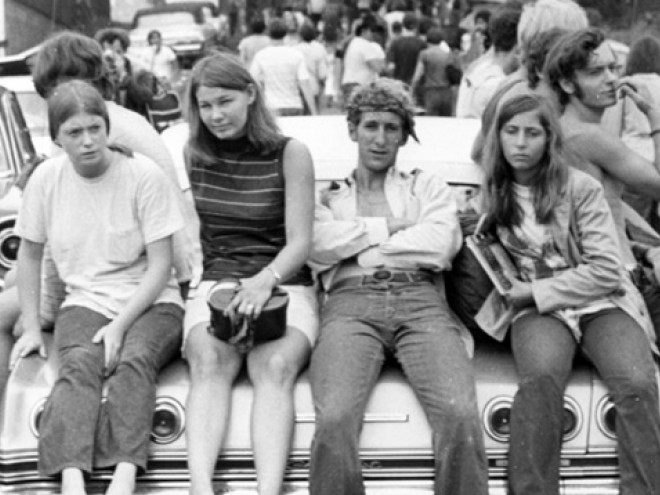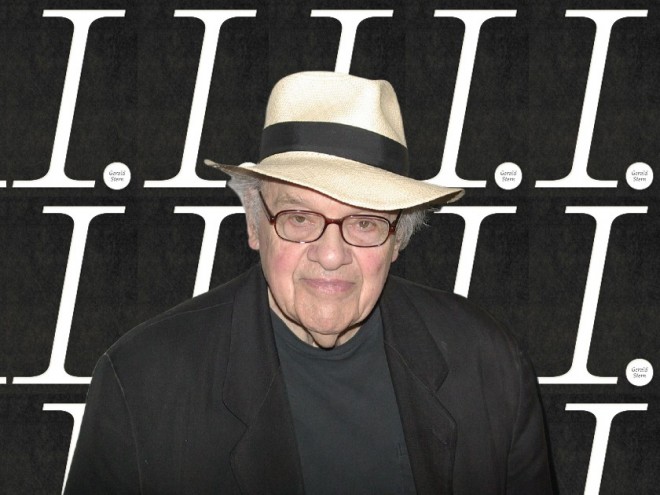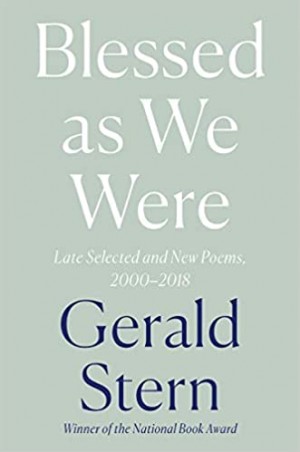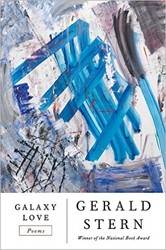Gerald Stern’s work stuns, leaves one breathless at times, though one suspects he himself may have had no such intention. Stern, author of at least fifteen books of poetry, respected professor at several universities, winner of many prizes, writes of life as he perceives it, a composite of the utterly ordinary and the spectacularly and bizarrely exquisite. Consider this from “Thom McCan:”
to put your feet in an X‑ray
machine and thereby get not
only cancer
and not only get fitted up with
the perfect pair of shoes, but
thence
to grieve how thin your bones
looked and how much more like
a bird
you were than an ape…and how
it was inevitable the limping, it
was called
the breaking in, I wanted to tell
you this
The emotional range in his poetry enables the reader to “read” Stern the man. In “Asphodel,” he mourns quite literally the pieces of a dead friend, regretting almost bitterly the “labor” required…“to see him…just to hear him.” The reader, too, leans forward to grasp this unnamed lost friend, a forgotten veteran of the Korean War who had large ears and wore a green cap. Stern’s ache for his friend becomes a visceral one for us as well. Here is Stern with his sense of the absurd, upon finding a shoe on a bridge. The poet tries to guess at the various motives for abandoning a shoe — “Too loose? Too tight? Leather? Cardboard?” (He’s never quite done with shoes!) Much later comes the explanatory, “I sold them at Boxer’s and Burt’s and carried the boxes on high.” Stern’s metaphor of shoes is not lost on us: what better form to symbolize our day-to-day, often anguished comings and goings? But it is in Part III, entitled “The Preacher,” that Stern, now 84, makes his resounding statements, railing against the “black holes” of the universe, those created by humans, “As if the one tree you love so well and hardly can embrace…so that without it there might be a hole in the universe.” He who has lived through Hiroshima, Memphis, Shatila, and 9 – 11, hardly ignoring a most personal impact of the Holocaust (“Heaped in Ravines the way my cousins were in Europe”) here beseeches us not to ignore that black hole.
Stern has been heralded as the modernday Walt Whitman for the celebratory nature and expansiveness of his poetry. He has won many awards, including three National Endowment Award Fellowships, a P.E.N. Award, most recently (2007) the Wallace Stevens Award given by the Academy of American Poets as a lifetime achievement award in poetry. His is the torturous challenge to us all, the terrible burden and exultation of being alive. As he succinctly says in his title poem, “Save the Last Dance for Me,” of the pain and self-loathing of youth, “We were caught between one pole and another.”





